Navigating Roofing’s Renewable Revolution - PODCAST TRANSCRIPT
June 30, 2025 at 12:00 p.m.Editor's note: The following is the transcript of a live interview with Anthony Romero, Eric Cieslak and Rob Smith of ABC Supply. You can read the interview below or listen to the podcast.
Intro: Welcome to Roofing Road Trips, the podcast that takes you on a thrilling journey across the world of roofing. From fascinating interviews with roofing experts to on-the-road adventures we'll uncover the stories, innovations and challenges that shape the rooftops over our heads. So fasten your seatbelts and join us as we embark on this exciting roofing road trip.
Karen Edwards: Hello everyone and welcome to another episode of Roofing Road Trips from RoofersCoffeeShop. My name is Karen Edwards and today's episode is going to be focused all on the solar landscape, the renewable revolution as we're calling it and I am thrilled to welcome the team of experts from ABC Supply to talk with me about this important topic. Anthony Romero, Eric Cieslak and Rob Smith are here today. Welcome. Gentlemen, it's great to have you here.
Rob Smith: Great to be here.
Karen Edwards: All right, let's get started with introductions. How about just introduce yourself, tell us a little bit about you and your role at ABC Supply. And Anthony, why don't you get us started?
Anthony Romero: Yes, my name's Anthony Romero. I'm the business development manager for renewables for the Central US. I pretty much cover from the Rockies to the Mississippi River. Our big, I mean our most focus right now is Texas, as it's the hot market and some of the Midwest states. So those are the areas I cover mostly right now.
Karen Edwards: Okay, thanks. Anthony and Eric, how about you?
Eric Cieslak: My name's Eric Cieslak. I worked for ABC Supply 10 years. Started off as a contractor prior to ABC Supply and bought from them. From there, a business development manager here in the west region from Colorado to Hawaii. And these are my counterparts and I work with them.
Karen Edwards: Excellent. And last but not least, Rob.
Rob Smith: Hey, Rob Smith and with ABC about a year and a half, but I've been in the solar business for over 16 years now and I cover everything east of the Mississippi.
Karen Edwards: Okay, excellent. So I'd like to start out by giving an overview of solar's current landscape. I remember it just feels like for the last 20 years or so, it's been, "Solar, it's coming, it's coming, it's getting more cost-effective," but you don't really see it, but I feel like we are starting to hear a little bit more about it. So who wants to speak to that? What's happening right now in the industry With solar?
Anthony Romero: We've seen steady growth over the past few years up until we saw a huge spike in '21 and '22 and then the last year it kind of just died off a little bit, it had a little drop. And this year it's continued to remain flat and we think we'll see that going through the rest of this year, but the outlook for the next four years looks great. All the indicators are saying that it's going to continue to grow and we're going to surpass the numbers that we were seeing in '22 and '21. So it's pretty exciting. I think it's a great time to be in the industry and with the tariff situation, anytime there's something like that going on, there's room for opportunity so we're looking for the new opportunities that are going to come from that.
Rob Smith: And even with the federal tax incentives, then also local incentives and utility incentives we're seeing a large boom on the solar side of things. Certain states is going to be more geared towards the adoption of battery storage, adding in California, for example, as a predominant solar market. So a lot of people already have solar on their home, but they don't have a battery system to help back up that power should the grid go out.
Karen Edwards: Okay. Yeah, it seems like it's becoming more common. Solar, renewable energy, everybody wants it, but there's a lot of things that have to come along with it, including the battery storage. And so how is that being affected maybe by uncertainty in the economy? Are we feeling like, Anthony, you mentioned a spike, a steady growth and then a spike in '21 and '22, but the future looks good. So are we kind of just waiting to open those floodgates? Is that sort of the atmosphere right now?
Anthony Romero: Yeah, I think the economy's had a big part to do with when people are tight on money, they're not spending that extra money on things like solar or upgrades to their home, they're kind of just holding still while they see kind of what happens. But just with the outlook of where we think the economy's headed and where solar's headed, I mean we're poised to see some huge growth over the next couple of years.
Karen Edwards: Okay. So let's talk about the regulatory and economic factors that affect the industry. We touched on tariffs. What is the Domestic Content Bonus Credit?
Rob Smith: Sure. So for vendors that are actually want to capitalize on the additional 10% tax credits in terms of domestic content for the products, some of the manufacturers have actually created two separate lines, their traditional line and then a domestic content line. And a lot of that's actually geared towards your finance companies that are available in the markets. They're wanting that extra 10% to make the deal a little bit more attractive for the homeowner to be able to close more projects.
Karen Edwards: Interesting. Okay, so you mentioned homeowner. What about commercial business owners? Are there credits and incentives out to help them?
Rob Smith: Yeah, I mean you still have the 30% federal tax credit in place. In some rural areas, you also have the [inaudible 00:05:25] REAP grant, which is geared more towards agricultural type installations on hog farms, chicken farms, so on and so forth. But yes, there are some other alternatives outside of just that federal tax credit that the commercial incentives can have.
Karen Edwards: I'm curious where we're seeing more growth and where this projected growth is estimated to come from in a balance between residential and commercial applications. Where do you think that the potential is?
Anthony Romero: So the growth recently has been more in the commercial, but all the [inaudible 00:05:58] are showing that it's going to be heavily on the residential side of the business going forward. We're seeing a lot of micro grids out here in Texas where people are doing, it's called a virtual power plant. So instead of us going and upgrading our infrastructure that's needed up here in Texas, what we're doing is they're deploying batteries to all these homes and they're selling that power back onto the grid in the peak hours so it saves us from having to go upgrade our whole infrastructure out here, but we're seeing a lot of that happening out here right now.
Karen Edwards: Yeah, if you remember a few years ago, Texas really struggled to keep up with some power usage and so I imagine that is a factor that's helping more homeowners make the choice to go solar. Are you seeing that?
Anthony Romero: Yes. It was a huge factor. We saw battery sales spike after that battery and generator sales, so that's been a huge driving factor.
Eric Cieslak: I think that's definitely impacting the rest of the United States. I mean, because the big concept that everyone kind of misses when you have solar on your house and you're connected to the grid and the grid goes down, if you don't have a battery backup that's good during the day, you can get your panels that produce the energy and you can have the energy during the day, but then what do you do at night? So if you run into a situation where it's down and you have massive cloud coverage, you're going to be SOL. There is not anything there for you to pull from. So that's why they think the batteries are spiking across the United States, everybody wants energy independence, especially demand upon when I need it and that is a huge, huge thing and that's why everyone wants spiking and it's coming more off grid, more rural areas and then more unpopulated areas where you have rolling blackouts.
Karen Edwards: Right. So I am curious as to what some of the trends are and maybe we could just talk residential for now. You're seeing more manufacturers offering products that have solar integration, right? An asphalt shingle that has solar integrated, Tesla Solar Roof. What are you seeing more homeowners gravitating toward with these new integrated solutions?
Rob Smith: I would say in the new construction markets with the brand new roof going on, we're seeing definitely the emergence of what we call BIPV or Building-Integrated Photovoltaics, companies such as, you mentioned the Tesla Solar Roof or the CertainTeed, the Solstice Shingle, as well as the GAF Energy Timberline Solar series are basically solar integrated shingles. They're able to pack out an entire roof. It's great for homeowners that have HOA restrictions because it does blend in a little bit better than your traditional rack and panel systems do.
Eric Cieslak: Yeah, it's aesthetics. Mainly what we're hearing is most of the homeowners are pulling towards a solar shingle roof, it aesthetically looks more pleasing. If you're not used to seeing a rack and panel, I've ran across many people across the United States and said, "That is ugliest thing I've ever seen on a house." And it's funny because coming from California, you're seeing it almost on every home, but when you travel across the United States, you start to hear those comments. I would go with integrated shingles that have solar on it, then do a rack and panel set up. So it has its pros and cons and I think it's adjusting and it's a niche kind of product and it's making some leaps and bounds and it's coming into the market. It's an incredible product and it's interesting to see that we're not just getting just a simple rack and panel, we're adjusting and changing the concept of everything and it's ever-growing.
Anthony Romero: Yeah, it's just going to be exciting to see where they go over the next few years because still new, it's still fresh. I think over the next five years we're going to see a huge part of our business end up being BIPV.
Karen Edwards: Okay, so I think one of the conversations that's been happening over the last 20 years or so is the roofing contractor installs the roof, but then the solar system, maybe you need an electrician, maybe you don't. Are these integrated? Who owns the roof, I think at the end of the day is the question and who's responsible for it? And are these integrated, the BIPV systems making the install easier for roofing contractors or are they still kind of either needing an electrician on staff or partnering with an electrician?
Anthony Romero: So if you're working with a company like GAF Energy, they provide the electrician for the roofer. So it's super easy for a roofer to integrate and start selling that system because the shingles lay out like a traditional shingle would. And GAF energy provides them their electrician to show up after, so it's a great match. Pretty much the roofer sticks to what they know best and they leave the electrical component of that too, an electrical expert.
Rob Smith: And we call the BIPV products, kind of the gateway products for roofers wanting to get into solar that aren't ready to just jump right into that rack and panel type system. You bring up a great point, Karen, because last year at the NABCEP conference, which is the only credible solar certification in our industry, it was a big debate on who's actually qualified to be up on that roof. They were saying that roofers aren't qualified to install solar systems, but if you saw to the roofers, they say that the solar installers aren't qualified to be on their roof with the shingles voiding that warranty. So it was a great discussion. So it's a little bit of both, but I think at the end of the day, the roofer owns that roof because he is the one that's certified by the roofing manufacturer to warranty those roofs.
Karen Edwards: And what does NABCEP stand for? I'm going to put you on the spot. Do you know?
Rob Smith: It's the North American Board of Certified Energy Practitioners.
Karen Edwards: Okay and do roofing contractors strive to earn that certification or do electricians? This is going back to that same question.
Rob Smith: Yeah, so traditionally it's been your traditional solar contractors that are acquiring that, but I would say the roofing contractors that also have a solar division, they're usually going after that certification as well, because in certain states, the utility company does require you to have a NABCEP certification on staff to qualify for their utility incentives.
Karen Edwards: So I'm just curious if your solar system is tied back to the grid or the utility company, what do you need to know in order to do that?
Anthony Romero: You need to be a master electrician in order to get it tied back to the grid. That's pretty much common for... Anybody installing solar just to apply for a permit, they need to have a master electrician's license.
Karen Edwards: Okay. Wow. So lots of things go into a solar system and the battery and maybe tying back into the grid, talk a little bit about what ABC Supply is doing to help contractors make that leap into offering that solution as part of their product offerings.
Anthony Romero: Right now, as far as with our traditional roofers, we're having classes at our branches with companies like CertainTeed, GAF, just educating them on the product, how it installs, how the whole program works. We're doing a lot of that. And then just with the traditional solar installers, just bringing awareness to let them know that we are a solar distributor as well as a roofing distributor and they could utilize things like our rooftop loading that they've not had a chance to use through traditional solar distribution.
Karen Edwards: Eric, anything to add there?
Eric Cieslak: So I think in the roofing contractor, in reference to what Rob was saying about NABCEP and having an electrical license, like Anthony said, that is something a lot of the roofing contractors didn't figure out at first and so when they got into it, they're like, "I could just do this." And unfortunately, it's a lot more involved because you got to protect the process in which you're installing it, so you want to protect the homeowner and protect yourself because you can get hurt. So one of those education moments where you're talking to a contractor and maybe connecting them with an electrician or connecting them with a solar company that doesn't have a roofing division, so those acquisitions are coming together has been beneficial and it's something since we deal with the majority of roofing contractors in the United States, it is something that we were able to help with solar contractors.
Eric Cieslak: But then also if a roofing contractor wanted to get into solar, we had some discussions where the processes of getting into it, but it's, it's just as difficult as getting a roofing license as it is getting a solar contractor's license. So to allocate that time and to run a business and to get the journeyman and experience and the requirements required to get that license, it's a process. It's difficult, but I mean the solar contractors are doing it, the roofing contractors are doing it and everyone's becoming more of a hybrid construction company, giving them the capabilities of doing roofing and solar. So it's all done and in-house.
Eric Cieslak: We're trying to be the one-stop shop, giving them the same capabilities of loading for roofing material, also providing it for solar material to put on the roof. I mean, we want to do the heavy lifting and mitigate a lot of the labor and a lot of the concerns of loading something yourself so you don't get yourself hurt, let the pros take care of it. So those are the things that we are doing in turn to help the industry and hopefully it's working. Hopefully we're seeing the transition of everyone hybriding and getting to do both trades.
Karen Edwards: Yeah. I'm curious, I know you guys talk to contractors every day, how often does solar come up? Is it something that the contractors are seeing more with their customers and maybe having those conversations?
Eric Cieslak: I believe it's pretty regularly brought up to most roofers. I mean, back when I was doing it in 2008, it was coming up a little bit here and there and by 2010 and '11 it was literally, "Hey, do you do solar? I trust you as my roofer, I'm just kind of curious, do you do solar because I don't know... Or do you refer anybody or recommend anybody?" And like Rob and Anthony said, you own the roof, you're the roofer. So if there's a leak, they don't point at the solar contractor, they point at the roofer.
Karen Edwards: Right, yeah. Are there systems out there today, some of these integrated systems that offer like a one warranty?
Rob Smith: Yeah, so both CertainTeed and GAF Energy is... I mean, Tesla has their own warranty as well, but in terms of if you're going to install a GAF Energy system, it's paired with GAF shingles, so yes, it would be underneath one warranty underneath the GAF name or with CertainTeed.
Karen Edwards: Right. I would imagine that's something that's really making that solution more attractive is because as you mentioned, you don't have this person blaming this person, blaming the other person, it's one phone call to make.
Rob Smith: Plus with those two product lines, they're geared for roofers and installed by roofers, whereas your traditional rack and panel systems is traditionally always installed by the solar contractor and they're coming after the roof has been replaced or redone.
Eric Cieslak: Yeah and the warranty that's backed by GAF Energy and CertainTeed, CertainTeed offers a very nice warranty where it umbrellas the whole thing, including the roofing and all the solar components except for I believe the battery. That is an advantageous moment for a homeowner to say, "Okay, listen, even if this contractor goes out of business, I have a very large company that's established, been here for many years that I can get someone I can talk to and get it fixed." So that is an ease of mind for a lot of homeowners. Those two companies are very large and they take care of everybody.
Rob Smith: As we see the emergence, basically the roofing industry converging with the solar industry and vice versa, over the next probably five years, if you're a roofer not getting into solar, you're probably going to be missing out on a lot of projects and it's definitely going to affect your business and vice versa with the solar guys getting into the roofing sides. We're definitely seeing that emergence of a hybrid roofing/electrician or solar contractor coming and that's nationally as well. It's not just specific to California or Florida or Texas.
Karen Edwards: Yeah, I was going to ask that because I believe California, they always are kind of leading the way in environmental, renewable mandates that then tend to trickle out across the country. Currently in California, isn't solar required with a roof replacement?
Eric Cieslak: Yes. If you do new construction or a re-roof, you're required to do some type of renewable energy or energy efficiencies and I think it was at one time it was required you had to have three items in the house that was energy efficient or you could do solar, which covers all three items. So you had to do your windows, you had to do your stucco as energy efficient, you had to do water heater. There was multiple items, but I think that changed now and now it's, you just basically have to do solar and if you want to resell your home, I believe it was 2032 and give me some rope, that that was, reselling your home would have to require you to do an energy efficiency or renewable energy on it.
Karen Edwards: Okay. Yeah, so pay attention to that because a lot of things start in California and then they do end up kind of trickling across the rest of the country. Are there some areas where maybe solar's not the best option, like the Pacific Northwest, we have a lot of rain and clouds, but are the solar systems getting better that they'll still gather energy and electricity in cloudy weather?
Anthony Romero: Yeah, solar's come a long way. I mean, even the past 15 years that I've been in it, the modules are extremely more efficient, cost is coming down, so there's probably not a part of the country that solar doesn't work. I mean, there's always the home that's not the right home for it. If it's got trees around it and it's shaded everywhere, obviously that's probably not the best home for solar. But there's definitely certain instances where solar isn't the right application or needed on that home, but for the most part, there isn't a part of the country where someone couldn't benefit from it.
Karen Edwards: Okay. Question for you is, ABC Supply and supporting solar and your contractors and providing that education so they can learn about it, how about designing the system, the roof, "The solar panels should go here, we could have this many of them." How do contractors learn about that and are there resources that either you offer or that exist in the market to help them design the right system?
Rob Smith: So a lot of the manufacturers on the racking side of things, which is kind of the bones of the solar system that hold everything together up on the roof, a lot of those manufacturers do have free design software where you basically just input the address that you're looking to put solar on and it pulls up bird's eye imagery and you're able to design a system based off that. If you want to take it one step further in terms of creating plans or you want to work on the electrical side, there are third-party companies such as Aurora and HelioScope, just to name a couple of the name brands that are out there in the industry right now.
Karen Edwards: Yeah. With technology, you figure it's got to be getting easier and easier to figure that out. We're not doing the math manually anymore.
Eric Cieslak: Another good thing, a lot of roofers, they've been using EagleView for a long period of time and I've heard EagleView now is paired up with Aurora. So to help them do processes where they can do an EagleView of the roof to do a pre-measurement, go and see the homeowner and then they can upgrade those measurements into a solar measurement. So it's pretty neat to see the industry and the roofing marrying up with those solar design companies too. So the good thing is we give the recommendations, there are third parties, but we like to say, "Hey, you can go here, go there," and just help them out in any way we can. So that's kind of our goal is just the system and guide them in the best we can, but everybody has to do their due diligence and look into what fits their model and their company.
Karen Edwards: Yeah, it's true. I mean anything, start with research. There's a lot of information on the internet, but be wary too of the information you find on the internet. So I think it's important to partner with the trusted folks in the industry like ABC Supply, like your manufacturers, like your EagleViews because they're not going to steer you wrong.
Karen Edwards: I think this is really an important topic and I'm really glad you guys were here today to talk about it. And I think once you see, a lot of times someone gets solar on their home or their building and it's kind of like that, "Ooh, I want that on my roof." And then you can talk to someone about it, "Hey, how did that work out for you? What's your electric bill look like? What'd it cost?" So the more we install, the more we just by default help educate our neighbors and those who may want to go along and join that renewable energy bandwagon.
Karen Edwards: Let's just look really quickly at the future. I know Anthony, you said that the growth looks really promising. I don't have any of the stats, maybe some of them and I think they talk about solar in terms of gigawatts installed or megawatts installed. I don't know if there's numbers of percentage of homes that have it and where we think it's going to go. What is the potential out there?
Rob Smith: I do know one of the statistics was that our industry was supposed to be roughly about a 70 billion business by the year 2030, we actually already achieved that as a country in 2024, so those numbers are just going to be exponentially higher than they originally forecasted.
Karen Edwards: Wow. Yeah, that's fantastic.
Anthony Romero: By 2030, we're supposed to be at 7,630 megawatts, which is almost a third more than where we're at currently. So it's going to continue to grow over the next few years. I'm super, super excited about the future of solar right now.
Karen Edwards: Yeah and I think, Rob, it was you that said it earlier, if you're a roofing contractor and you're not looking into this right now, you're probably going to be left behind and miss out. So yeah, it's great to see. We talk a lot about contractors and diversifying their businesses and offering additional things and renewable energy and solar is, just it makes so much sense.
Rob Smith: They're already on the roof.
Karen Edwards: Yeah.
Eric Cieslak: Yeah. Karen, you're right, most contractors are multifaceted contractors. Not very many contractors I know only do just roofing. My company did gutters, we did stucco, we did driveways, we did windows and doors and roofing and then it was just a no-brainer to get into solar. Vice versa, I know solar contractors who are not just doing solar, so it's smart. It helps those hips and valleys. You have less highs and lows in your business and your revenue, so it is very, very smart to diversify what you do so you don't get impacted when something goes slow.
Karen Edwards: Yeah, right. So how does a contractor find out, you mentioned some educational events at the branches with some of the manufacturers just coming in show and tell, providing that knowledge, how would a contractor find out about what's coming up? They just talk to their local branch representative?
Anthony Romero: Correct. Work with their local branch representative. We try to have them at least once a quarter, if not more, but there's usually something... Some sort of training always going on at one of the branches.
Karen Edwards: Excellent, wow.
Rob Smith: And if you go to our main website, just abcsupply.com, usually we have banner ads that highlights some of the major solar trade shows that we attend, such as Intersolar, the RE+ local events or the big show as well.
Karen Edwards: Yeah, I'm glad you mentioned that because trade shows are a great way to get a firehose full of education. And I know there are some big solar power trade shows as well as some regional ones, so check that out on ABC Supply's website and maybe if you can get yourself to one of these shows, it would be a great way to immerse yourself in what's coming in the next few years.
Eric Cieslak: Yeah, I think if you talk to your customers in what they're looking for and then kind of hyper focus on what those products would be and then talk to your local rep and say, "Hey, this is what I'm hearing in the industry and I'm hearing what the homeowners want, can you help me find out what these companies are?" And that's where that help happens with ABC Supply and guiding them. So it's not just, "Hey, these are the brands, this is what we're doing." It's more like, kind of giving an option to the homeowner because the homeowner's never really had an option and today, now they have an option. "Do you want to be off grid? Do you want full coverage of your home when the power goes out? What do you want homeowner?"
Eric Cieslak: And I think that's what's the amazing thing about solar now is it's really changed from a solar contractor telling you, "This is what we're going to do and you don't have a choice," to now you have an option. So I think getting together with your local rep and getting it and getting some actual training from the local vendors or manufacturers, they have reps all over United States and they're here to assist and educate. And I think the more we know, the better it is for everyone in this industry.
Karen Edwards: Yeah. Well said. Thank you. Anthony, Eric, Rob, thank you so much for being here and having this great conversation about what the future holds for solar. And I encourage everybody listening to be a part of it. And be sure to subscribe to our podcast on your favorite podcast platform. Follow us on social media. We definitely don't want you to miss out on anything. And we hope to see you on a future episode of Roofing Road Trips. See y'all next time, bye.
Outro: If you've enjoyed the ride, don't forget to hit that subscribe button and join us on every roofing adventure. Make sure to visit rooferscoffeeshop.com to learn more. Thanks for tuning in and we'll catch you on the next Roofing Road Trip.




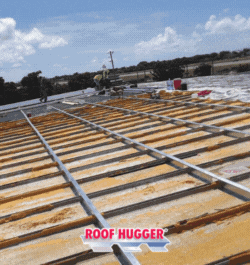








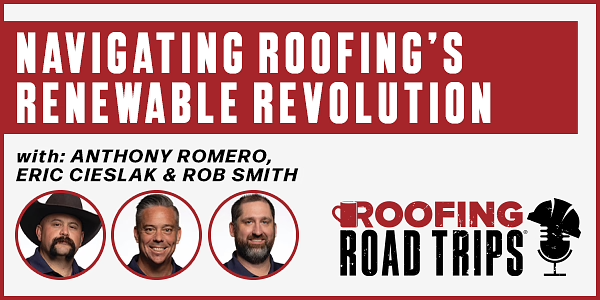
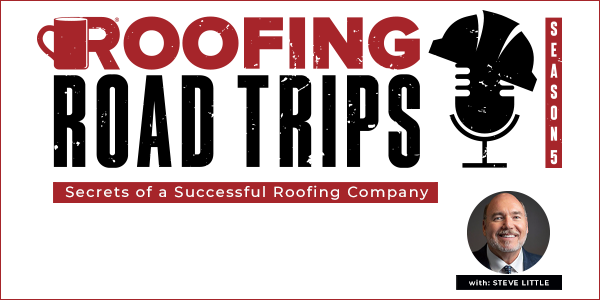
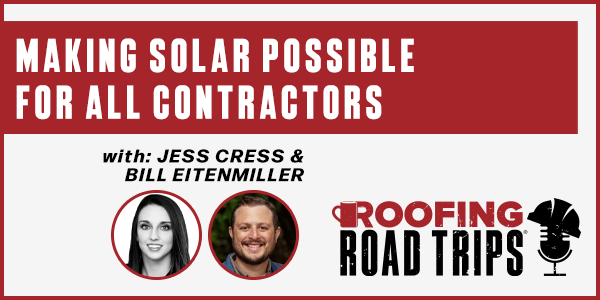
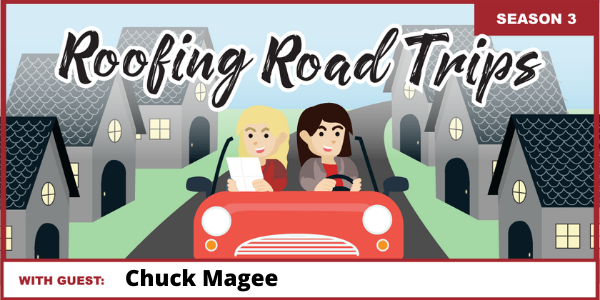



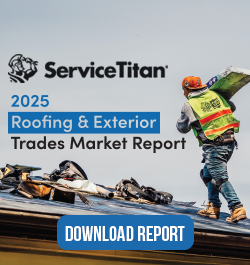

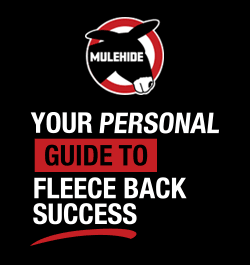
Comments
Leave a Reply
Have an account? Login to leave a comment!
Sign In